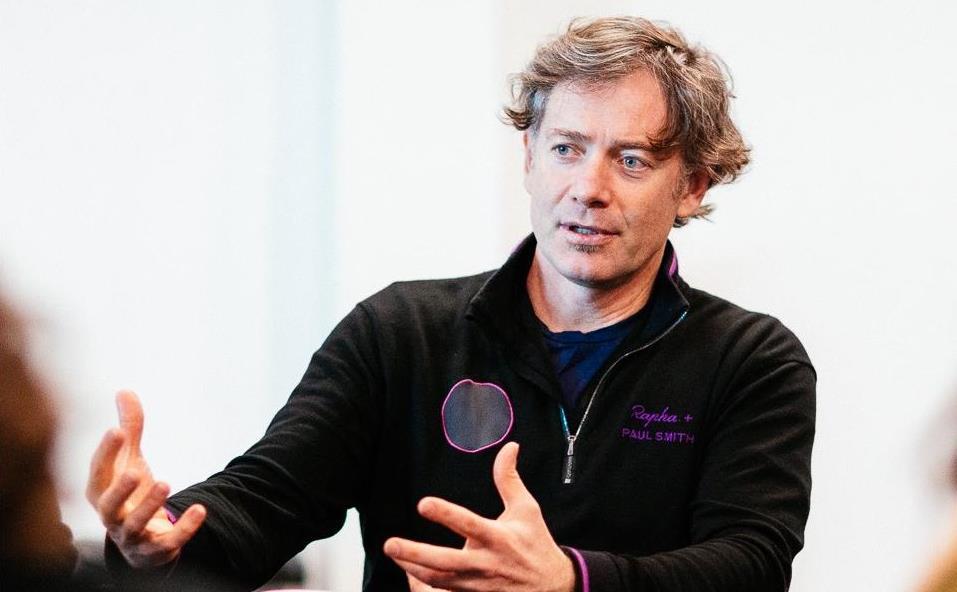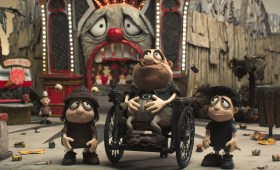‘In the four months since lockdown, the number of minutes or hours viewed on DocPlay on a weekly basis has jumped two-fold,’ says Paul Wiegard, co-founder and CEO of Madman Entertainment, the parent company of the dedicated documentary streaming platform. ‘Since the start of this year we’ve seen a monthly compounding growth of about 5 to 6 per cent. It’s aggressively growing, and it’s directly related to COVID.’
Talking on the phone to Screenhub from the dark days of Melbourne’s second enforced hibernation, Wiegard says this new engagement is gratifying amidst the doom. ‘It’s all very well to have a platform that people feel they need to support, or to declare their interest in but never open up. What you really want is people actively watching, and we’re seeing those numbers jump enormously.’
The DocPlay Audience
What kind of person subscribes to a dedicated documentary streaming service? ‘We know our audience are generally in a higher socio-economic group, and we’d like to say well educated too, because they’re watching our films!’
What are the exact numbers of paying subscribers? Nobody’s going to tell us that, but Wiegard can reveal that twice-weekly EDMs (mailouts) go to a database of about 70,000 people and open rates are high. There’s a good take-up of the free promotional subscriptions (see our Hub Club), and naturally some attrition after those periods run out.
‘What you really want is people actively watching, and we’re seeing those numbers jump enormously.’
‘In the streaming space I don’t think it’s unfair to describe it a bit like gym memberships. You’ve got those that use, those that let it lapse, and those that roll up and say “we’re in season, we’ll use if for 3 months and then we’ll disappear again.” There is a lot of that activity, and we call it churn, but our churn isn’t that high. It sits around 3-4 per cent every month of your total subscriber base, and that’s offset by growth.’
This growth isn’t just the lockdown effect. Wiegard also attributes it to a ‘critical mass’ expansion of DocPlay’s offerings from a whippet-thin initial offering of 130 films when it started, to more than 800 titles now, with new ones added twice weekly. Part of this expansion came from a content agreement with ABC Commercial to include 180 hours of factual content from the ABC’s library onto the service, where it sit alongside international features and series, and more than 30 Academy Award nominated films, covering everything from politics to sport to fashion, health, history and science.
In keeping with the platform’s philosophy, and indeed, its very reason for existence, the curated collection has a special focus on Australian and New Zealand content. The exact proportion varies from month to month, but it hovers around 40 per cent, and Wiegard says it will never drop below a minimum of 30 per cent (in terms of hours).
Read: How the broadcasters are killing the one-off documentary
The History of a Streaming Service
It’s been three-and-a half years since Madman launched DocPlay in December 2016, with support from Screen Australia’s enterprise funding program. The company already had the proprietary technology in place from their 2015 launch of SVoD platform AnimeLab, which delivered Japanese anime content to rabid fans in Australia and New Zealand. These fans have have been a central pillar in the Madman success story since it was started back in 1996 by Wiegard and Tim Anderson. Without going into the storied history of the company, it’s safe to say that in the 24 years since then it’s become a key and multi-pronged player across the Australian screen landscape, with integrated activities in production, theatrical and home entertainment distribution and rights management.
Documentary has become an increasingly important part of that whole business. To give you some idea of Wiegard’s involvement, his credits as Executive Producer of high profile Australian docs ranges from Not Quite Hollywood: The Wild Untold Story Of Ozploitation (2008) to That Sugar Film (2014) and Mountain (2017). In 2019 alone, there was Mystify: Michael Hutchence, 2040, The Australian Dream and The Leunig Fragments.
‘We were struggling to place a lot of our films into a second license. There were few places that we could place our films beyond film festivals, but we knew there was a large market, especially for those local stories…’
But back to the origins of the DocPlay platform: ‘We had this idea that there could be a curated service for documentary content because we knew in our own experiences we were struggling to place a lot of our films into a second license. There were few places that we could place our films beyond film festivals, but we knew there was a large market, especially for those local stories that might not be of interest to the big international streaming platforms. So we pitched it to Screen Australia for Enterprise Funding. We were a successful recipient, and I would go so far as to say we were one of the golden children from that program. In that three years on, it’s a commercial initiative that is working, and we’ve returned back into the Australian and New Zealand film sector three or four times that initial investment.’
Would DocPlay have been launched without that investment (in the order of around $250,000)? ‘Yes, eventually, but this gave us the focus it needed to get up and running quickly. It probably fast tracked the initiative by at least 12 to 18 months.’
A non-exclusive revenue-sharing model
An important part of the model is revenue-sharing with the filmmakers, providing them with an additional revenue stream. ‘We transparently share with the producers or rights holders their activity on the platform, to which we then share out 50 per cent of the revenue based on pro rata minutes viewed.’
Is this model unique? Wiegard laughs and says there’s no such thing as unique. ‘With ours, it all sits behind a subscription paywall. You could effectively say that all content put up on YouTube has a degree of revenue sharing, but in our case it’s curated, and it’s all behind a single paywall. There’s no advertising per se. We thought for us it was the lowest, most efficient way we could provide a favoured nations approach to bringing on content, where all the content was dealt with on the same terms. And if your projects did perform, then you’d be remunerated along those lines.’
Read: Cracking the Code: cashing in with online documentary content
There’s also flexibility for rights holders as DocPlay is a non exclusive platform. At the same time, Wiegard says that in streaming there’s a huge demand and focus on new releases. You do need to have a point of difference. ‘The platform has got to the point where there’s enough critical mass where we can bring on board titles exclusively. So we’re endeavoring to have published at least three to four films every month that are exclusive to DocPlay for a period of time. It’s a balance, frankly, where we need to have some of those headliners, especially when it comes to generating the news coverage or publicity and film criticism. Those things tend to be pegged against exclusive release, so it’s partly informed by that side of it as well.’
It’s comforting to think that classic Australian factual content might still get a play. Are viewers looking for it? Weigard says yes, and gives the example of Blackfella Films’ First Australians series, which has been very popular recently, with the rise of awareness around racism and Indigenous issues.
‘There are always documentaries from the past that provide fantastic insights and context to these moments of time.’
A series format, as opposed to a standalone documentary, is increasingly appealing to viewers who experience anxiety around too much choice. When one episode leads naturally to the next, it cuts out that spiralling confusion.
‘Older Australian content does get played if it’s curated properly, and if there’s a moment in time or a zeitgeist thing. It’s extraordinary how every week there’s another news story that has relevance, or has been covered in a documentary that’s been made previously. So we are constantly drafting off these moments, and often there’s a direct relationship, and there are always documentaries from the past that provide fantastic insights and context to these moments of time.’
How does the content sharing with ABC work? ‘It’s exactly on the same terms as what is the case for all other licensors or content suppliers. If you do go into the ABC – and they have an extraordinary volume of material that they can draw upon – a lot of it can easily be lost, especially if it isn’t positioned in a way that audiences can find it. So we have sort of mined their library. They’re looking for sources of revenue, frankly, for the content that they representing, so it’s in the interests of the filmmakers, ultimately, that you’re finding new homes and new audiences’.
Weigard says that the ABC retains the rights to a lot of their commissions for extended periods, whereas SBS is more of a license business and the rights in most cases revert fairly quickly back to the licensors, the producers. ‘So we talk to those producers directly.’
Curation, Tech and the Team
Weigard says tthat in the last four months, with the the shutdown of cinemas and the slowing of other parts of the business, they’ve been able to redeploy a number of their team from the theatrical side of the business on to the DocPlay platform. This has meant additional marketing and publicity and curation and acquisition of films.
The actual technology is supported by the tech team that they call VODlabs, which supports three platforms, and they’ve all been around for years. ‘I won’t go too much into the tech side of it. But you have your IOS developers, and then you have your Android developers, and then you’ve got those that are specialising in the smart sort of TV interfaces.’
‘On the curation side, it’s a small team. There’s a bit of overlap with the Madman team at large, but we three dedicated resources working on just on DocPlay, but there’s so many other touch points to the broader business. From finance, to design, through to all the tech, if you wanted to add up, the entire thing is probably 15 to 20 people who would be engaged with the platform on a weekly basis.’
Quick Questions for Paul Wiegard
Wiegard had to rush off early to an AIDC meeting, where he’s on the Board of Directors for the annual documentary conference, but he was happy to answer some quick questions by email. Here they are:
What makes Australian and NZ documentaries special to you?
PW: From a streaming platform perspective they’re directly relevant to domestic communities, have inbuilt audiences and filmmaking teams that are likely to champion the platform.
A wonderful example of this special relationship is the support demonstrated by the Documentary Australia Foundation.
On a personal level: local documentaries are more likely to directly influence social change, capture remarkable local stories, educate and entertain audiences with our shared history.
What’s the usual window for a Madman distributed documentary before it appears on DocPlay?
Wearing a Madman distribution hat: the release strategy is specifically based on the film ingredients and opportunities, rather than guided by an overarching ‘window’ or holdback policy, i.e. films such as The Biggest Little Farm and Pavarotti played a full three to four months on the big screen. Traditionally, many documentaries have enjoyed an elongated film festival roll out and then scheduled on DocPlay. This however, has abruptly changed, with numerous blue chip documentaries being fast tracked directly to the streaming services. With 7+ billion people there are many extraordinary stories now being well told!
If there was one piece of advice you could give to independent Australian documentary filmmakers, what would it be?
In most cases, the passage of time is your friend. Be clear with the project objectives and recruit a gun editor! Editors do not get enough credit!
What are the main challenges for the business that you see in the year ahead?
For all rights management and investment, the greatest challenge is uncertainty in virtually every aspect of production, marketing and distribution. For DocPlay, the streaming industry is crowded, which is both a positive and negative challenge. The specialised nature of the platform and curation provides audiences with a distinct offering that should satiate interested audiences.
If you could highlight three newish acquisitions (features or series) on Docplay this year, what would they be?
There are too many to highlight, but here are a few:
SPACESHIP EARTH (2020) < now available > is the true, stranger-than-fiction, adventure of eight visionaries who in 1991 spent two years quarantined inside of a self-engineered replica of Earth’s ecosystem called BIOSPHERE 2.
BELUSHI (2020) < upcoming > The Blues Brothers star whose name evokes the American comedy of the late 70s. Without any onscreen speaker, a real inventory of everything that can exist and that we had never seen on John Belushi, an unequalled exploration of the career of this great actor with such crazy energy. Directed by RJ Cutler (September Issue).
THE DOG DOC ( 2020 ) < July 17th > Dr. Marty Goldstein has been called everything from “maverick” to “miracle worker.” Dr. Goldstein’s practice, Smith Ridge Veterinary Center, provides holistic treatment for animals after other vets have given up hope. Directed by Cindy Meehl (Buck).
Interested in trialling DocPlay? ArtsHub and Screenhub members can head to the Hub Club for a two-month free trial.





